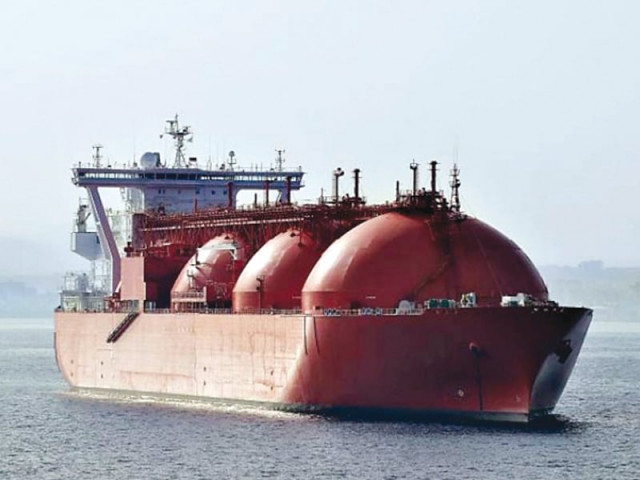LNG supplies: SSGC to consider paying Rs10b capacity charges
Some board members of the company expected to oppose payment

LNG supplies: SSGC to consider paying Rs10b capacity charges
The management of Sui Southern Gas Company (SSGC) may face a hard time in winning the board’s seal of approval for payment of Rs10 billion per annum capacity charges to Elengy Terminal Pakistan Limited (ETPL) for handling liquefied natural gas (LNG) imports, a burden which will eventually be borne by consumers.
The Ministry of Petroleum and Natural Resources is pressing SSGC’s management to get approval of the capacity charges and even the company’s board of directors has come under pressure to give its nod, officials say.
ETPL is constructing an LNG terminal at an estimated cost of $150 million and will receive $100 million per annum as capacity charges even if there is no LNG supply.
ETPL, a wholly owned subsidiary of Engro Corporation, had won the bid for LNG terminal services and quoted a tolling fee of 60 US cents per million British thermal units (mmbtu).
The SSGC’s board of directors is expected to meet on August 23 to consider giving approval to payment of capacity charges.

However, officials said, the management may face resistance as some board members had decided to oppose such high capacity charges. The board will consider providing around $50 million worth of standby letter of credit in favour of ETPL to cover six months of capacity charges.
According to the LNG terminal services agreement between ETPL and SSGC, the latter has to arrange around $50 million to cover capacity charges for six months. However, banks have indicated that the letter of credit will depend on signing of the heads of agreement – a non-binding document outlining main issues relevant to a partnership – between PSO and LNG suppliers before August 28.
According to officials, Pakistan State Oil (PSO) – the state-run oil marketing company –has provided a comfort letter to SSGC against capacity charges, but it is not acceptable without signing a deal with the LNG suppliers.
Talking to The Express Tribune, ETPL Chief Executive Officer Imran Sheikh said SSGC had not yet provided the standby letter of credit and clarified that the $50 million amount was not true as the gas utility would be paying less than that.
SSGC would pay in line with import of 200 million cubic feet of LNG per day (mmcfd) in the first year and 400 mmcfd next year, he said.
However, the capacity charges had sparked concern among economic decision-makers, who asked PSO to carry out due diligence before issuing the letter of comfort for gas import.
The Economic Coordination Committee (ECC), in a meeting on February 28, was upset to know that PSO would issue the letter and pay millions of dollars in capacity charges even it was unable to import LNG from Qatar.
It was of the view that this would put a big burden on taxpayers. “The federal government controls PSO, so the letter of comfort would have a bearing on taxpayer’s money. Therefore, before issuing the letter, PSO should carry out due diligence,” the ECC noted.
However, ECC members stressed that the LNG services agreement was a commercial contract between two entities – SSGC and ETPL – and their boards of directors were fully competent to grant approval in respect of the accord.
They termed the project important keeping in view a significant decline in natural gas production in the country because of fast
depleting reserves.
Published in The Express Tribune, August 16th, 2014.
Like Business on Facebook, follow @TribuneBiz on Twitter to stay informed and join in the conversation.


















COMMENTS
Comments are moderated and generally will be posted if they are on-topic and not abusive.
For more information, please see our Comments FAQ